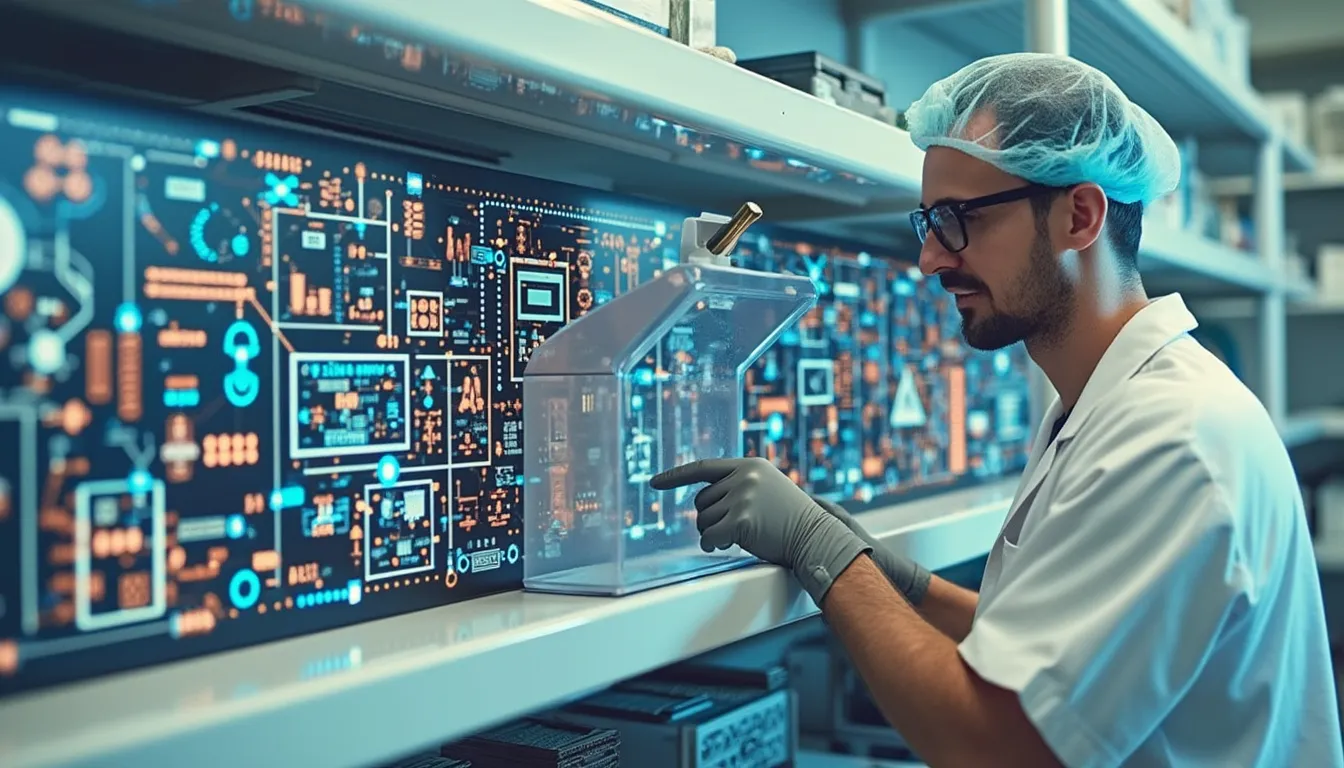The Role of AI in Advancing Medical Diagnostics
In an innovative leap, researchers at the University of Zurich are harnessing the power of artificial intelligence to tackle one of the most pressing issues in modern medicine: antibiotic resistance. Utilizing advances in technology, they have developed an AI tool that employs the GPT-4 model to help identify antibiotic-resistant bacteria, marking a significant step forward in the field of diagnostics. This move aligns with a broader trend of integrating sophisticated AI systems in healthcare, aimed at enhancing efficiency and accuracy in medical testing and interpretation.
One of the primary applications of this AI system is in the interpretation of the Kirby-Bauer disk diffusion test—a routine laboratory method used worldwide for determining bacterial susceptibility to antibiotics. The AI, dubbed EUCAST-GPT-expert, operates under the guidelines of the European Committee on Antimicrobial Susceptibility Testing (EUCAST), ensuring that the AI’s methods align with recognized standards and contribute to a dependable diagnostic process.
Challenges and Potentials of AI Integration
When put to the test, the AI system analyzed hundreds of bacterial isolates to ascertain its effectiveness. The results were promising, showcasing its potential in streamlining the antibiotic resistance detection process. However, the EUCAST-GPT-expert is not without its limitations. While the AI displayed a commendable ability to detect certain types of resistance, it also noted instances where bacteria were erroneously categorized as resistant. Such errors underscore the current imperfections of AI systems and the need for continual refinement to achieve the level of accuracy maintained by human experts.
Despite these limitations, the introduction of AI in this context offers a noteworthy trade-off: while human experts provide more accurate readings, AI accelerates the diagnostic process. The standardization and speed provided by AI could reduce variability and subjectivity inherent in manual readings, which could ultimately translate to better patient outcomes.
Further testing and enhancement of this AI tool are imperative before considering its deployment in healthcare environments. Current findings suggest that AI could play a pivotal role in the global fight against antibiotic resistance, preserving antibiotic efficacy and supporting human efforts in microbiology. Such technology can act as a valuable complement, rather than a replacement for, human expertise in medical diagnostics.
The path forward involves integrating AI like GPT-4 into clinical settings, which represents both a challenge and an opportunity. Researchers at the University of Zurich are at the forefront of this endeavor, setting a foundation for future applications of AI in combating antibiotic resistance. This is a vital step in developing effective, innovative solutions in healthcare, combining human knowledge with machine efficiency to enhance diagnostic precision and patient care worldwide.




